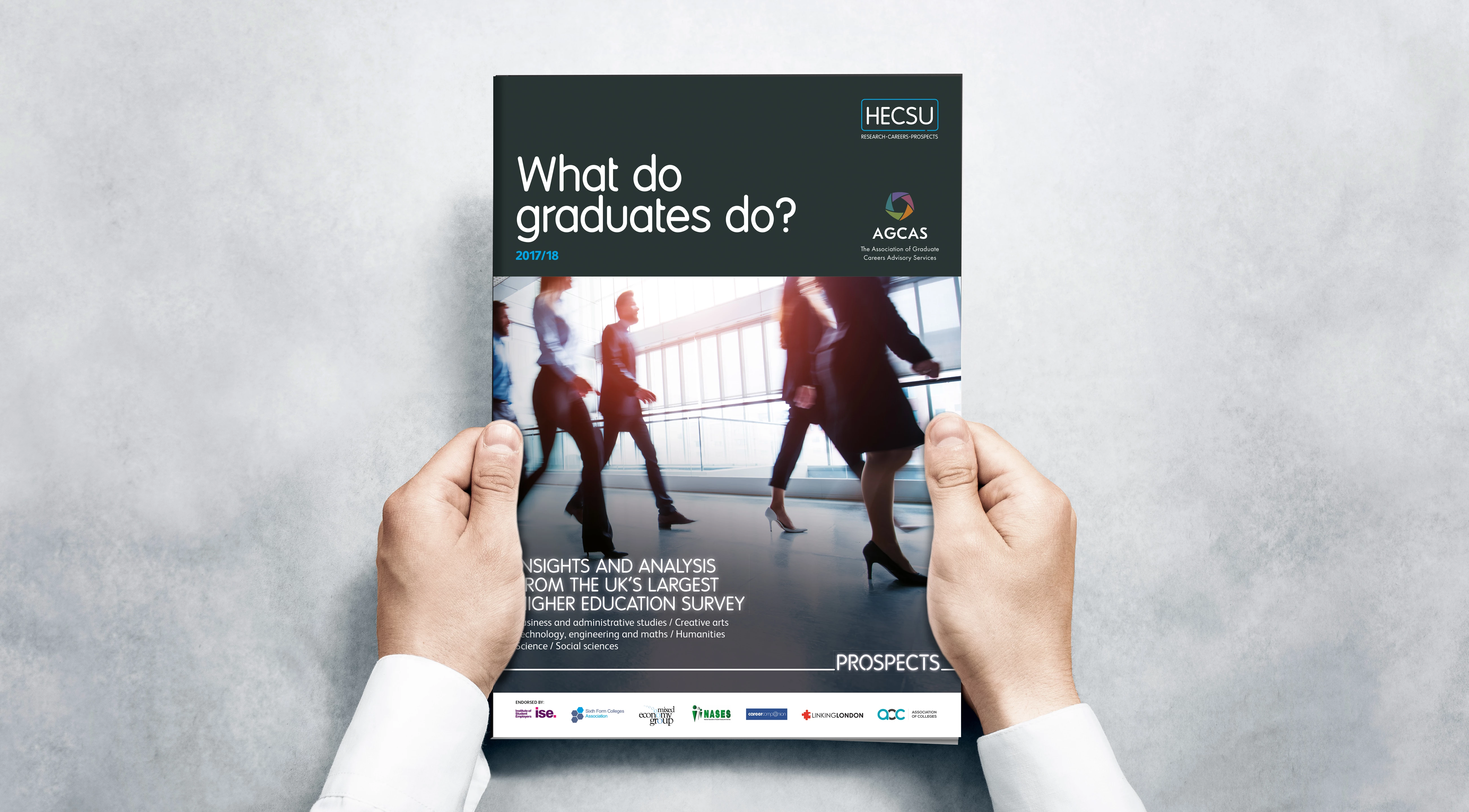
Partner Article
Graduate unemployment rate lowest since 1989
A robust graduate jobs market combined with a sharp rise in students taking postgraduate courses has led to the lowest graduate unemployment rate since 1989.
Prospects “What do graduates do?” report analyses the destinations of last year’s graduates, six months after leaving university. It reported a fall in the graduate unemployment rate to 5.3% from 5.7% in 2016. Only three years in the last 40 has the UK experienced lower levels. The employment rate for graduates also fell, from 76% to 74%.
The reason both employment and unemployment rates fell is due to a sharp rise in graduates entering further study. Increasing from 13% to 16% this year - 39,135 graduates entered further study, up from 32,385 last year.
While the UK is currently not in recession, increasing numbers of graduates going into further study are historically linked to economic downturn, as demonstrated in the last three major downturns.
“What do graduates do?” also shows that while there were large rises in graduates entering nursing, marketing, finance and IT, there were significant falls in the number of graduates working in medicine, teaching and engineering, reflecting the decreasing number of students studying those subjects. Despite many industries such as these having a shortage of workers, this did not translate into higher graduate starting salaries, which remained flat at an average of around £21,000.
Charlie Ball, Head of Higher Education Intelligence at Prospects said: “The graduate labour market has held up well despite the economic and political shocks of 2016. Employers continue to recruit and need skilled workers, but some graduates are not behaving as they usually do in this kind of climate, they’re turning to further study. This may be partly attributed to the new postgraduate loans system, but some graduates could also view further study as a safe haven, away from their fears of a Brexit downturn, which has yet to materialise. As a consequence, we have fewer graduates entering the jobs market than in the last two years, just when the labour market is robust and skills shortages are more serious than ever.”
“What do graduates do?” is written in partnership with the Association of Graduate Careers Advisory Services (AGCAS). AGCAS President Shelagh Green commented: “Along with Higher Education Careers Services, the annual What do graduates do? data is a valuable source of information for current students as they plan for their futures. The constantly changing nature of the graduate labour market and the global economy makes it essential for today’s students to embrace the opportunities and support available.”
Jane Howie, Chair of the AGCAS Education Liaison Task Group commented: “What do graduates do? focuses on topical issues including entrepreneurship, social mobility and apprenticeships. Content is relevant not only to students, graduates and careers and employability practitioners, but also to wider stakeholders including academics and colleagues in student recruitment and employer engagement.”
This was posted in Bdaily's Members' News section by Prospects .
Enjoy the read? Get Bdaily delivered.
Sign up to receive our popular morning National email for free.








 Raising the bar to boost North East growth
Raising the bar to boost North East growth
 Navigating the messy middle of business growth
Navigating the messy middle of business growth
 We must make it easier to hire young people
We must make it easier to hire young people
 Why community-based care is key to NHS' future
Why community-based care is key to NHS' future
 Culture, confidence and creativity in the North East
Culture, confidence and creativity in the North East
 Putting in the groundwork to boost skills
Putting in the groundwork to boost skills
 £100,000 milestone drives forward STEM work
£100,000 milestone drives forward STEM work
 Restoring confidence for the economic road ahead
Restoring confidence for the economic road ahead
 Ready to scale? Buy-and-build offers opportunity
Ready to scale? Buy-and-build offers opportunity
 When will our regional economy grow?
When will our regional economy grow?
 Creating a thriving North East construction sector
Creating a thriving North East construction sector
 Why investors are still backing the North East
Why investors are still backing the North East